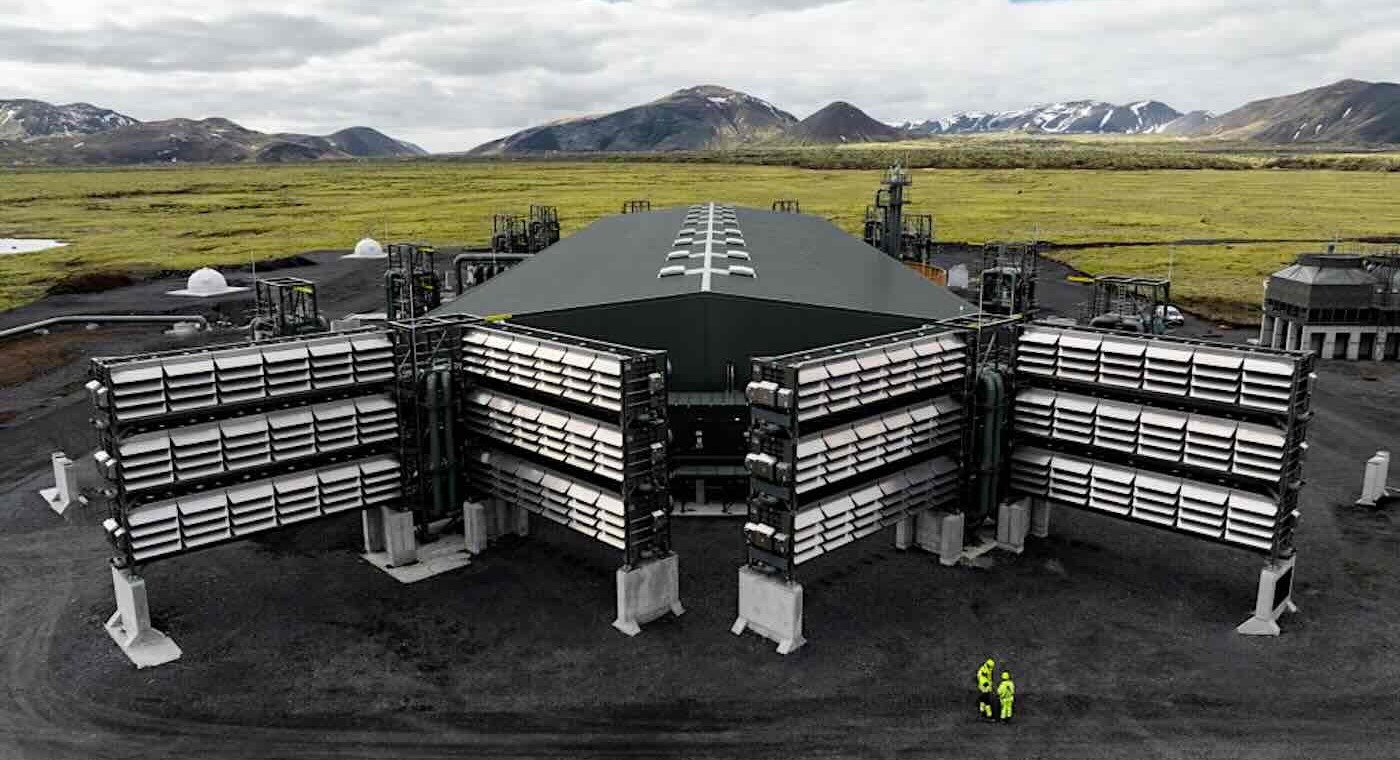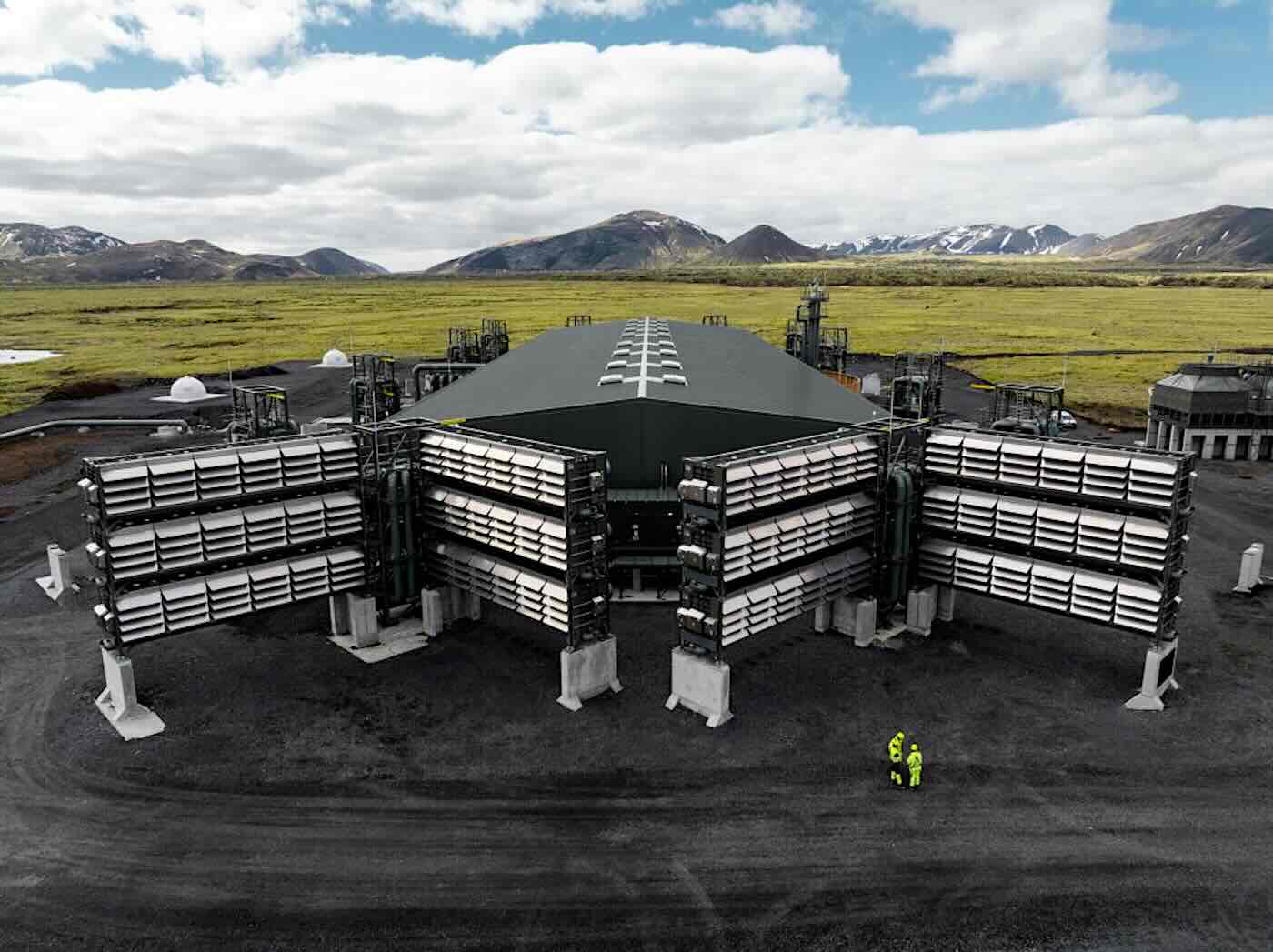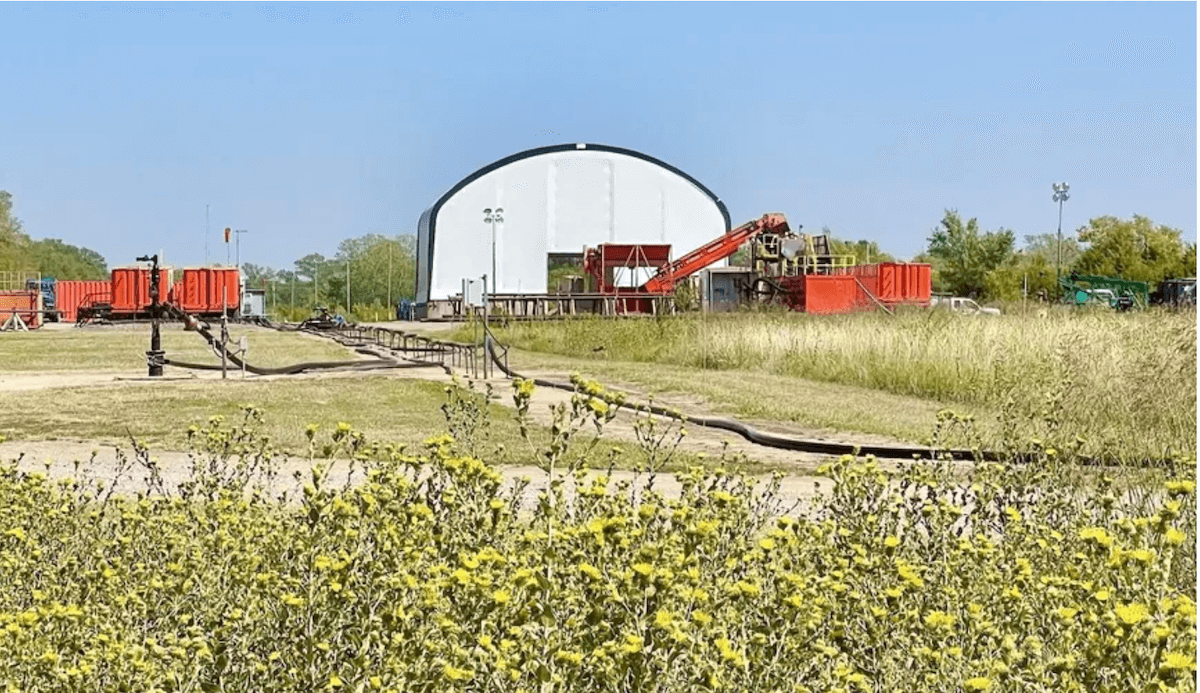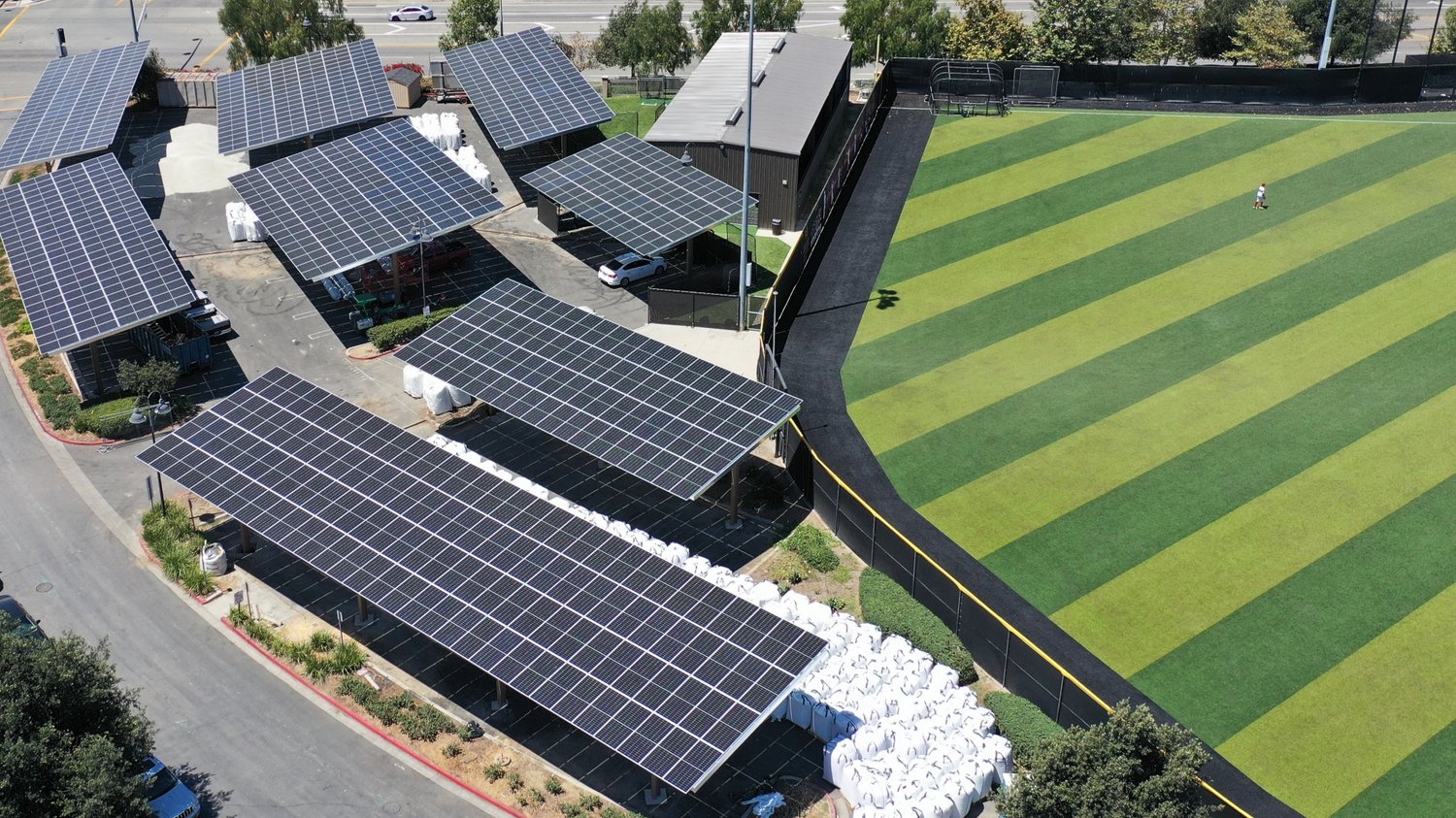ImpactAlpha, Nov. 30 – Can rapid tech innovation disrupt slow-moving policymaking?
World leaders and their envoys descending on Dubai this week for the COP28 climate confab will use the levers of policy to try to stave off catastrophic global warming. Their toolkit: national emissions reduction targets, voluntary pledges and government-funded climate aid – and now, disruptive startups.
“Climate innovation often doesn’t get talked about at COPs,” says Tristan Tremschnig with the nonprofit New Energy Nexus, or NEX, which is partnering with the summit organizers to establish the NEX COP28 Climate Tech Startup Accelerator. “We think of a wider climate circle as part of the solution mix.”
The accelerator marks the first such program in 28 “Conferences of the Parties,” as the gatherings are formally known. It’s one of several initiatives at this year’s climate gathering designed to strengthen climate tech solutions and ecosystems, with a focus on emerging markets.
In addition to a Tech and Innovation Hub in the COP expo, organizers have also designated a team to oversee technology partnerships. Innovate for Climate Tech, a coalition led by the United Arab Emirates’ Masdar City, China’s Tencent and Catalyst, an Abu Dhabi-based accelerator, aims to bridge North-South divides around climate solutions and strengthen climate tech ecosystems.
“We’re seeing a lot of COP28 ripple effects in the tech community” in the Middle East and North Africa, says Jamil Wyne of Riffle Ventures, which is part of the coalition. “More funds, entrepreneurs, universities and other institutions are launching climate tech initiatives.”
Speeding the transition
Some 80 out of the 100 startups in the NEX-COP accelerator hail from the Global South. Evre, based in India, makes charging stations for two-, three- and four-wheeled electric vehicles; PAC Corp., in Thailand, has developed energy efficient water heaters and air conditioners; and Jordan-based Neurotech uses AI to more efficiently manage energy, including in refugee camps.
“We need to inoculate these significant markets that matter with entrepreneurship support services,” says NEX CEO Danny Kennedy, who approached the United Arab Emirates’s COP28 team about establishing the program. “These places are going to determine the speed and scale of the transition” to clean energy.
Started in 2004 as a California-focused clean energy fund, NEX now has operations around the world, ranging from accelerators similar to the NEX-COP partnership, to loan and grant programs deploying capital to entrepreneurs focused on clean energy. The nonprofit remains headquartered in the Bay Area but has a sizable presence in Asia, investing in over 200 global startups each year.
Silicon Valley’s culture of innovation helped it become the world’s tech hub. But just as important is the strong network its tech founders created, passing down knowledge and making critical connections to nab financing. Similar networks among entrepreneurs in developing markets are lagging, hindering their development and the speed at which founders scale their solutions.
The NEX-COP accelerator aims to close that gap, connecting entrepreneurs with one another and, most crucially, getting the startups in front of potential investors. In addition to the five-week online accelerator, which took place ahead of COP, the startups will have the opportunity to wheel and deal in COP’s Green Zone, which includes the Startup Village where founders can present their solutions and generate new investments. Seven of the cohort members will present next week as part of an entrepreneur showcase.
Sustainable agriculture in Southeast Asia
In the early months of 2021, Myanmar’s army staged a coup, replacing the newly elected government with the military junta. It was the latest upheaval in the southeast Asian country, further driving away foreign investment.
For agri-tech startup Agros Global, and one of the 100 innovators selected for the accelerator, it was just another hurdle to jump over as it continues to grow its footprint in the country. Founded in 2020 as the pandemic began, Singapore-based Agros wanted to bring sustainable farming practices to a country that is often shunned.
“It’s one of those difficult countries that are not prioritized because of all of the risks,” Agros’ Sandra Bos tells ImpactAlpha. “But when you’re there, it can also be rewarding for your business if you take the risk.”
The bet paid off.
Building on its success in Myanmar, Agros has expanded into Cambodia and is launching in Indonesia next month. The common thread between the three countries, apart from their geography, is their dependence on small farmers. More developed countries in the region like Vietnam and Thailand have a robust agriculture industry, run primarily by large conglomerates.
Small producers looking for inexpensive solutions and hampered by an unreliable energy grid, proved to be the perfect jumping off point for Agros’ solar-powered water pumps to replace the heavy diesel-powered generators that most farmers use. “It’s a very big market with an underdeveloped agricultural sector,” says Bos.
The company’s other product analyzes a farm’s soil, measuring the exact nutrient profile. That enables Agros to write a fertilizer prescription of sorts for the produce the farmer is looking to grow. Bos says the solution cuts costs for farmers who previously relied on one-size-fits-all fertilizer and can lead to better crop yields.
She and her colleagues are accustomed to the challenges the more rural countries pose, but Indonesia with its vast islands is a daunting prospect. The company is starting small with one island before gradually expanding.
The startup landed $2.7 million in March in a pre-Series A round led by Gaia Impact Fund and Schneider Electric Energy Access Asia. Agros is looking to raise an additional $5 to $7 million next year as it expands to new markets and develops its latest product: clean pest and disease control.
As difficult as southeast Asia can be to operate in, its market size and relevant lack of competition provides an enormous opportunity for Agros to grow – and to dramatically cut emissions in the region.
Cooking in Sub-Saharan Africa
Hamady Gamby is another of the hopeful entrepreneurs from the NEX cohort looking to snag investors. The Ghanaian entrepreneur applied to be part of the accelerator after seeing an ad on LinkedIn, seeking to generate new financing streams and connections for his company Clean Cooking Sub-Saharan Africa.
Clean Cooking is helping households transition to more sustainable fuel sources for cooking. Close to half of Ghana’s population in the country cooks using biomass, such as wood or charcoal, according to a 2022 study conducted by the University of Cape Coast in Ghana.
Clean Cooking’s products include biofuel made primarily of ethanol and methanol, along with a portable stovetop. But Gamby has bigger ambitions, venturing next into a hydrogen facility.
He’s partnering with French startup Hydro Air Concept Energy to build a utility-scale hydrogen facility. They hope to open in 2027, Gamby said. He has received a $250,000 grant from the Global Environment Facility and is looking to raise an additional $3 million to get the project off the ground.
“We’re looking to expand to new markets and invest in equipment because setting up a hydrogen project requires a lot of money,” he explains.
Creating a permanent presence
Climate tech advances have been a bright spot in climate action for years, says NEX’s Kennedy. So the focus on startups at the climate talks is welcome.
“Startups are deploying solutions in this decisive decade and innovators are creating the pieces we still need to phase out fossils,” he says, adding “they can give delegates a sense of the deeds not words needed now.”
While this is the accelerator’s first year, Kennedy is working to ensure it won’t be the last. The program is funded by climate philanthropists (Kennedy won’t disclose names), but more funding is needed to create the most value for the entrepreneurs, Kennedy said.
NEX planned to fly in some of its top 100 innovators for Abu Dhabi’s finance week, which preceded COP, but funding proved to be a limiting factor — something Kennedy hopes additional funding in future years will accommodate.
In the meantime, the entrepreneurs from the inaugural class are part of the NEX ecosystem. And for those that made it to COP28, they might just be able to pitch a policymaker.











